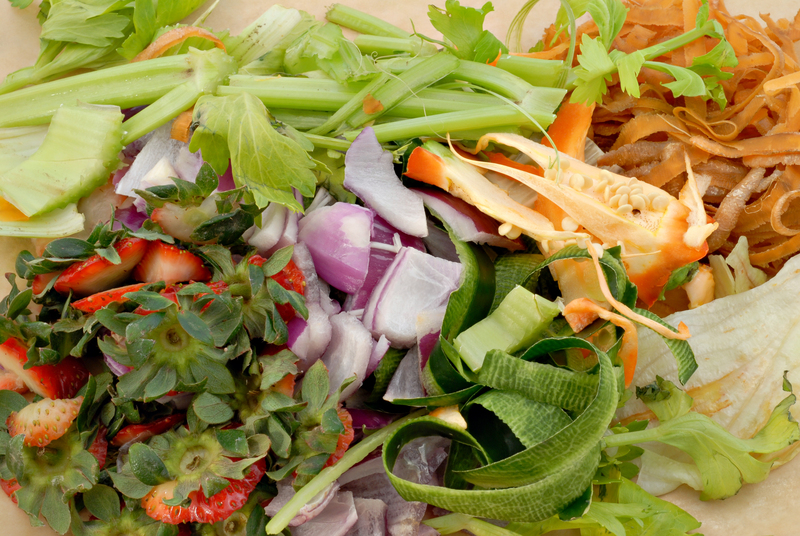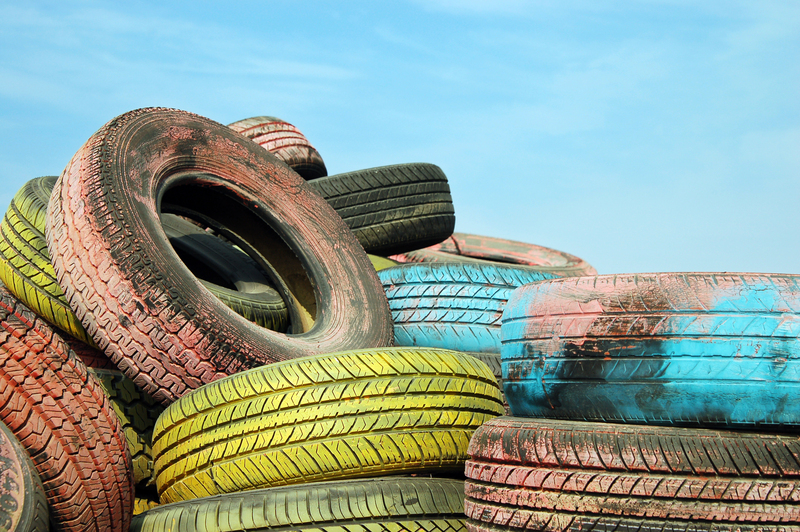Creating a Recycling-Friendly Home for Kids to Learn
In today's rapidly changing world, sustainability and environmental consciousness are crucial values to impart to the next generation. Creating a recycling-friendly home for kids to learn about waste management, resource conservation, and environmental stewardship is one of the best ways to cultivate these important values early on. This comprehensive guide explores practical, creative, and engaging methods to foster eco-friendly habits and establish a recycling mindset among children that will last a lifetime.

Why Teach Children about Recycling?
Building a recycling-conscious environment at home does more than just reduce waste--it also empowers children with a sense of responsibility, understanding of global environmental issues, and the critical thinking skills needed to tackle real-world problems. Recycling education for kids also:
- Promotes problem-solving and decision-making skills
- Fosters creativity through upcycling and repurposing activities
- Encourages collaboration and teamwork within the family
- Develops an appreciation for nature and sustainable practices
- Equips children with eco-friendly habits for adulthood
The Benefits of a Recycling-Friendly Household
- Reduces Household Waste: Less trash means less landfill use, helping minimize your family's ecological footprint.
- Conserves Resources: Recycling saves natural materials and energy used in manufacturing new products.
- Teaches Environmental Stewardship: Children learn how their actions impact the planet.
- Boosts Family Engagement: Working together on recycling projects can strengthen relationships and teamwork.
- Encourages Lifelong Habits: Kids who grow up in recycling-friendly homes are more likely to continue these habits as adults.
Getting Started: How to Build a Recycling-Friendly Home
The journey to a recycling-friendly home for kids begins with a few simple but vital steps. Here's how you can create a space where children are inspired to learn, ask questions, and actively participate in recycling processes.
Step 1: Talk about Recycling and Its Importance
Begin by holding an age-appropriate conversation about what recycling is, why it is important, and the impact it has on our planet. Stories, short videos, and real-world examples can make these concepts easier for young minds to grasp. Involving your children in discussions gives them a voice and helps cement the importance of recycling by making them feel like part of the solution.
- Ask questions: "What happens to the trash we throw away?" and "Why do you think it's important to reuse or recycle things?"
- Discover together: Research where your local recycling goes and share the findings with your kids in simple terms.
- Set the stage: Explain that your family will become recycling "champions" by creating a home where everyone can help the planet.
Step 2: Design Easy and Accessible Recycling Stations
An effective home recycling station works best when it's designed with kids in mind. This means bins that are clearly labeled, easy to reach, and color-coded for quick identification.
- Label bins with words and pictures for common items: paper, plastics, metals, glass, and compost.
- Use bright colors or decals--kids love visual cues that guide them to the right bin.
- Keep the bins at a height that young children can access safely.
- Place a recycling station in the kitchen, playroom, or anywhere waste is generated.
- Let your children help decorate or personalize the bins for a sense of ownership.
Step 3: Teach the Basics of Sorting and Cleaning
Sorting recyclables can seem confusing. Make it fun by creating sorting games or simple checklists. Show kids which items go where, and emphasize why certain materials (like food-soiled paper or unclean containers) can't be recycled.
- Use checklists with pictures and simple words listing recyclable vs. non-recyclable items.
- Make a game: Turn sorting into a timed "race" to see who puts items in the correct bins fastest.
- Teach the importance of rinsing containers before recycling to prevent contamination.
Step 4: Turn Recycling into a Family Project
Encourage everyone to take part in your recycling-friendly home initiatives. Assign weekly "Recycling Leader" roles, involve kids in taking out the recycling, and celebrate when they do it right!
- Create a rotating schedule so each child gets a turn as the "Recycling Captain."
- Keep a sticker chart to track participation and reward eco-friendly habits.
- Plan monthly family "clean-up" or "upcycle" days to reinforce teamwork.
Fun Activities to Reinforce Recycling Habits at Home
Making recycling fun is the key to maintaining children's interest. Here are imaginative activities that combine learning with entertainment:
1. Upcycling Arts & Crafts
- Turn empty bottles into plant pots or bird feeders
- Make puppets from old socks, cereal boxes, or bottle caps
- Create homemade musical instruments using cans and rubber bands
*Tip: Encourage kids to invent new ways to reuse packaging or everyday items before recycling them!"
2. Recycling Sorting Games
- Create "recycling relay races" where kids run to place recyclables in the right bin.
- Play "What Goes Where?" flashcard games using photos of household waste.
- Put on a scavenger hunt for recyclable items around the house and see who finds the most.
3. Recycling Story Time
- Read books about recycling and sustainability. Some favorites include "The Adventures of a Plastic Bottle" or "Michael Recycle."
- Let children write or draw their own stories about a recycling superhero.
4. Eco-Friendly Science Experiments
- Show decomposition rates: Bury different materials (banana peel, plastic, paper) and observe changes over time.
- Make homemade paper from old newspapers.
Setting Recycling Goals and Tracking Progress
Inspiring lasting change involves setting clear recycling goals at home and measuring your achievements. Help kids feel proud by showing them the positive impact they're making.
- Keep a tally of how much you recycle every week--use a chart with stickers or check marks.
- Set family rewards (like an eco-friendly outing) for reaching recycling milestones.
- Take "before and after" photos of your trash and recycling output to visualize improvements.
- Share your family's success with relatives or friends to inspire others!
Expanding the Learning: Recycling Beyond the Home
Once your household is regularly practicing eco-friendly recycling habits, look for opportunities to extend your impact into the community and deepen your child's understanding.
Get Involved Locally
- Participate in neighborhood cleanups or recycling drives
- Visit a local recycling center or landfill for a guided tour
- Help your child write a letter to local leaders supporting greener practices
- Join or support school-based recycling programs
Practice Responsible Shopping
- Choose products with recycled or minimal packaging
- Shop at thrift stores and explain the benefits of reusing and donating
- Select reusable lunch containers, straws, and water bottles
Explore Eco-Friendly Technology and Apps
- Use kid-friendly recycling apps for sorting and educational games
- Watch documentaries together about how recycling helps protect natural resources
Overcoming Common Recycling Challenges at Home
No home is perfect, and even the most eco-friendly families can face obstacles on their recycling journey. Addresses challenges openly with your children and look for solutions together.
- Too much contamination? Revisit rinsing and sorting routines, and post a "Recycling Rules" list near the bins.
- Kids losing interest? Introduce new games or rotate upcycling crafts to keep learning fresh and fun.
- Limited local recycling options? Research drop-off points for hard-to-recycle items or join local environmental groups for support.
- Lack of motivation? Emphasize the big difference each small act makes in protecting the planet, and celebrate all wins, big or small!
Empowering Kids with a Voice in Sustainability
Perhaps one of the most important elements of a recycling-friendly home for kids to learn is giving children the agency to make decisions and invent new solutions. Value their input--invite them to suggest improvements, pick new upcycling projects, or even help design family recycling challenges.
When children see that adults take their ideas seriously, they're more motivated to practice and share what they've learned, influencing friends, neighbors, and their schools as well. *Empower your young recyclers--they may just become tomorrow's environmental leaders!*

Conclusion: Building a Greener Future Together
By creating a recycling-friendly home environment, you're laying the foundation for eco-conscious values, lifelong habits, and a healthier planet. Remember, the goal isn't perfection--it's sustained progress and teamwork. Foster curiosity, celebrate every step forward, and keep learning together. The lessons you teach today will have a far-reaching impact as your children carry their recycling knowledge into the wider world.
Start small, stay consistent, and make it a family adventure. With a little creativity, commitment, and encouragement, your home can become a living classroom where kids learn the true power of recycling and sustainability!
FAQ: Creating a Recycling-Friendly Home for Kids to Learn
Q: What are the easiest materials for kids to start recycling at home?- Paper (newspapers, magazines, office and school papers)
- Plastics (bottles, jars, and most containers with recycling symbols)
- Aluminum cans and tins
- Glass bottles and jars (where locally accepted)
Use simple language and visual demonstrations. Say, "Recycling means giving things a new life, instead of throwing them away." Show how a bottle can become a new toy, or a can can be reused for crafts.
Q: What should we avoid putting in our recycling?- Plastic bags and wrappers (unless your town accepts them)
- Food-soiled paper or containers
- Styrofoam and most ceramics
- Electronics and batteries (take to special drop-off sites)
Resources and Additional Reading
- EPA: How do I recycle?
- National Geographic Kids: Recycling Facts
- National Geographic Kids: Kids and Recycling
- Kids Against Waste
Empower your family--one recycled item at a time! Together, let's build a home where children discover how to protect the earth for generations to come.